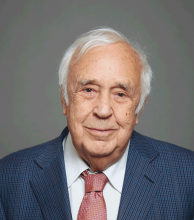You are here
Can the Olympics prevent war?
Feb 16,2022 - Last updated at Feb 16,2022
LONDON — Before the start of the current Beijing Winter Olympics, United Nations Secretary-General António Guterres called for an “Olympic Truce” to “build a culture of peace” through sport. International Olympic Committee President Thomas Bach echoed this sentiment in his speech at the opening ceremony. “This is the mission of the Olympic Games: Bringing us together in peaceful competition,” Bach declared. “Always building bridges, never erecting walls.”
But the gap between the Olympic dream and reality has always been huge. Political leaders have sometimes ignored the Games, as the Kremlin did when Russian troops invaded Georgia on the first day of the 2008 Beijing Summer Olympics. On other occasions, governments have weaponised the event. Adolf Hitler used the 1936 Berlin Games as a showcase for his Nazi regime, while the United States led a boycott of the 1980 Moscow Summer Olympics in retaliation for the Soviet Union’s invasion of Afghanistan. The Soviet Union and its allies subsequently boycotted the 1984 Summer Games in Los Angeles.
All countries treat the Olympics as a symbol of national strength, not of peace. In 2015, for example, Chinese President Xi Jinping declared that, “if sports are strong, a nation is strong”. That dictum seems to have motivated Russia’s state-sponsored doping programs. Countries frequently use medal tallies as proxies of the success of their political and economic systems.
It is no surprise, then, that the 2022 Beijing Winter Olympics symbolise conflict instead of unity. The Games come at a moment when the division of the world into two antagonistic blocs has become palpable, with the West ratcheting up its rhetoric in support of endangered Ukraine, and China rallying to the side of Russia.
Moreover, the two blocs’ respective leaders will not meet and talk at the Games, because the US and some of its allies are maintaining a diplomatic boycott of what some Western media outlets have called the “genocide Olympics”, a reference to China’s alleged mistreatment of Muslim Uyghurs in Xinjiang province. Instead, says Sophie Richardson, China director at Human Rights Watch, the list of government officials who attended the opening ceremony “almost reads like a who’s who of highly abusive governments”.
But the idea of the Olympic Truce, inherited from the ancient Greek games, was always a myth. As the late Mark Golden of the University of Winnipeg pointed out, “[t]here is no evidence that wars stopped for the Olympic festival”. And David Goldblatt, in The Games: A Global History of the Olympics, notes that the event continued throughout the Peloponnesian Wars of the fifth century BC.
The truce was instead intended to protect the stadium and the spectators, and to secure the athletes’ safe passage to the games. It thus served much the same function as medieval churches and mosques did, providing a sanctuary from a dangerous world. To violate that sanctuary would be a sin against God. But the churches also served a wider purpose: to point to the possibility that the City of God might be realised on Earth, and that the world itself might become a sanctuary from violence and war.
It was in the pursuit of peace that Baron Pierre de Coubertin advocated reviving the Olympics in 1896, after a 1,500-year gap. “Let us export rowers, runners, and fencers: There is the free trade of the future,” de Coubertin said. “And on the day it is introduced within the walls of old Europe, the cause of peace will have received a new and mighty stay.” De Coubertin’s idea was that conflict might be channeled into individual contests of sporting excellence, with competition among athletes replacing struggles between countries.
People have always understood that spectator sports enable crowds to let off steam harmlessly: Football is the great contemporary example. But de Coubertin had more in mind than this. On one hand, he harked back to the medieval tradition of knightly jousting tournaments as alternatives to full-scale battles. But he also adhered to the nineteenth-century faith that freedom of commerce, ideas, travel and communication of all kinds would soften the antagonism of tribes, classes, and countries. The more people knew about each other, the better they would understand the other’s point of view and seek peaceful coexistence.
The impossibility of sealing off international athletics from international politics is illustrated by the case of Eileen Gu, an 18-year-old Chinese-American freestyle skier who won her first gold medal at the current Games. Gu, who was born in California, previously competed for the US before choosing in 2019 to compete for her mother’s homeland, China. Her decision has prompted adulation in China and accusations of ingratitude and shamelessness from her American critics. Publicly, Gu refuses to recognise any political aspect to the situation, preferring to repeat a favourite mantra: “I am American when I am in the US, and Chinese when I’m in China.”
Gu is, in her own way, both attempting to revive the ideal of an apolitical Olympics and showing how the ideal is — and always has been — a pipedream. Rather than aiming to exclude politics, the Olympic authorities should promote the Games’ role as an alternative to war. Diplomatic boycotts, like economic sanctions, cut links between countries and, contrary to accepted theory, desensitise people to others’ opinions. This makes politics impossible, or at least more difficult.
I wish that US President Joe Biden, Russian President Vladimir Putin, and Ukrainian President Volodymyr Zelensky had all gone to Beijing to cheer on their countries’ athletes and also talk informally with each other, as well as with Xi. Had they done so, we would be further removed from the prospect of war in Ukraine today.
Robert Skidelsky, a member of the British House of Lords, is Professor Emeritus of Political Economy at Warwick University. Copyright: Project Syndicate, 2022.













